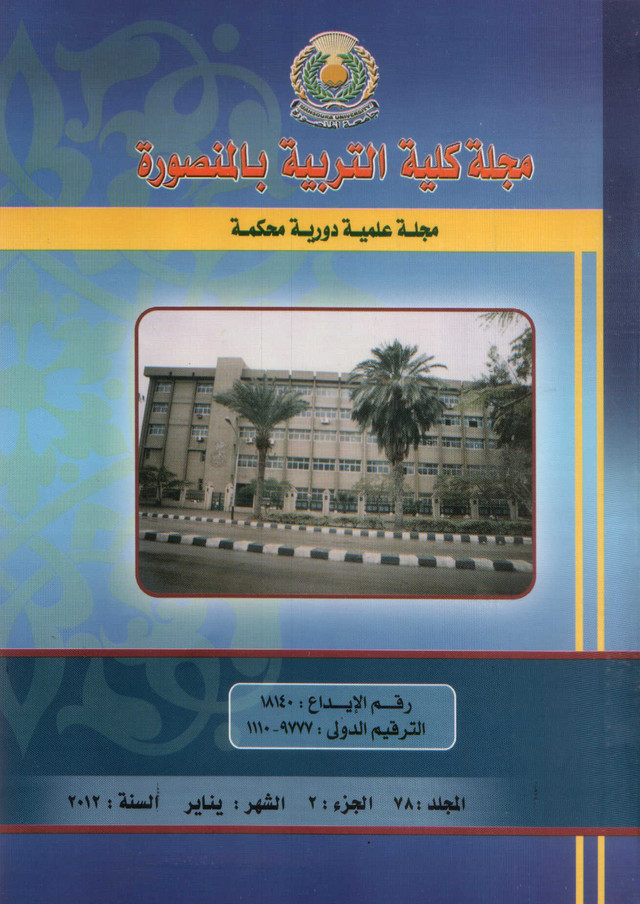هدفت الدراسة الحالية إلى بحث التأثيرات المباشرة للحاجة إلى المعرفة والنوع الاجتماعي (ذكور - أناث) على كل من التفكير المنفتح النشط والتحصيل الأكاديمي، واختبار الفروق بين الذكور والإناث في الحاجة إلى المعرفة والتفكير المنفتح النشط بأبعاده الثلاثة (الفكير المرن، تعديل/تحديد المعتقد، الانفتاح/ الجمود الفكري "الدوجماتية"، كما تم بحث العلاقات الارتباطية بين كل من الحاجة إلى المعرفة والنوع الاجتماعي والتفكير المنفتح النشط بأبعاده الثلاثة والتحصيل الأكاديمي. وقد تكونت عينة الدراسة النهائية من (350) طالباً وطالبة ( 140 ذكور، 210 إناث) من طلاب الفرقة الرابعة شعبة التعليم الابتدائي بكلية التربية - جامعة سوهاج، وقد تم جمع بيانات الدراسة من خلال تطبيق مقياس الحاجة إلى المعرفة(Cacioppo, et al., 1996)، ومقياس التفكير المنفتح النشط(Stanovich, West, 2007) ، والنسب المئوية لدرجات التحصيل الأكاديمي التي تم الحصول عليها من واقع النتيجة المعلنة للطلاب عينة الدراسة في نهاية العام الجامعي 2016/ 2017م. وقد كشفت نتائج اختبار "ت" عن وجود فروق ذات دلالة احصائية عند مستوى (0.01) بين الذكور والإناث في الحاجة إلى المعرفة والتفكير المنفتح النشط وبعد الانفتاح / الانغلاق العقلي "الدوجماتية" لصالح الإناث. وقد كشفت نتائج معامل الارتباط عن وجود علاقات ارتباطية دالة بين حاجة الطلاب للمعرفة، وكل من التفكير المنفتح النشط بأبعاده الثلاثة والتحصيل الأكاديمي لديهم. كما كشفت نتائج معامل الارتباط عن وجود علاقة ارتباطية دالة بين النوع الاجتماعي للطلاب وكل من التفكير المنفتح النشط، وبعد الانفتاح/الجمود الفكري والتحصيل الأكاديمي لديهم. وأخيراً كشفت نتائج تحليل المسار عن تحقق جميع الشروط حسن المطابقة، وهذا يعني أن بيانات الدراسة الحالية مطابقة للنموذج المقترح. كما كشفت نتائج تحليل المسار أيضاً عن وجود تأثير مباشر دال احصائياً لكل من الحاجة إلى المعرفة والنوع الاجتماعي كمتغيرات مستقلة على كل من التحصيل الأكاديمي، والتفكير المنفتح النشط كمتغيرات تابعة.
The purpose of this study is to investigate the direct effects degree of university students’ levels of need for cognition and gender on their actively open-minded thinking and academic Achievement, examine differences between males and females in the need for cognition, actively open-minded thinking with its dimension (flexible thinking, belief identification/ modification, dogmatism), and academic achievement, and the correlation between these three variables was investigated. The Sample of study was consisted of (350) students (140 males and 210 females) from the fourth year students of the primary education branch at the Faculty of Education - Sohag University, Eygypt. The data were collected by: Need for Cognition Scale (Cacioppo, et al., 1996); Actively Open-minded Thinking scale (Stanovich, West, 2007) and the percentage of academic achievement degrees which declared at the end of the academic year 2016/2017 for the participants. The t-test result revealed that there is a significant differences (P≤0.01) between the males and females in need for cognition, actively open-minded thinking, dogmatism dimension, for females. The correlation analysis revealed that there is a significant relationship between students’ need for cognition and, actively open-minded thinking with its three dimensions and their academic achievement. The correlation analysis revealed that also there is a significant relationship between students’ gender , need for cognition, actively open-minded thinking, dogmatism dimension and their academic achievement. The results of path analysis revealed that all the conditions of model fit were achieved, and this is means that the data which collected at present study fitted with the model proposed. The results of path analysis result also revealed that there is significant effects (P≤0.05 or 0.01) of the need for cognition and gender as independent variables on actively open-minded thinking and academic achievement as dependent variables.

